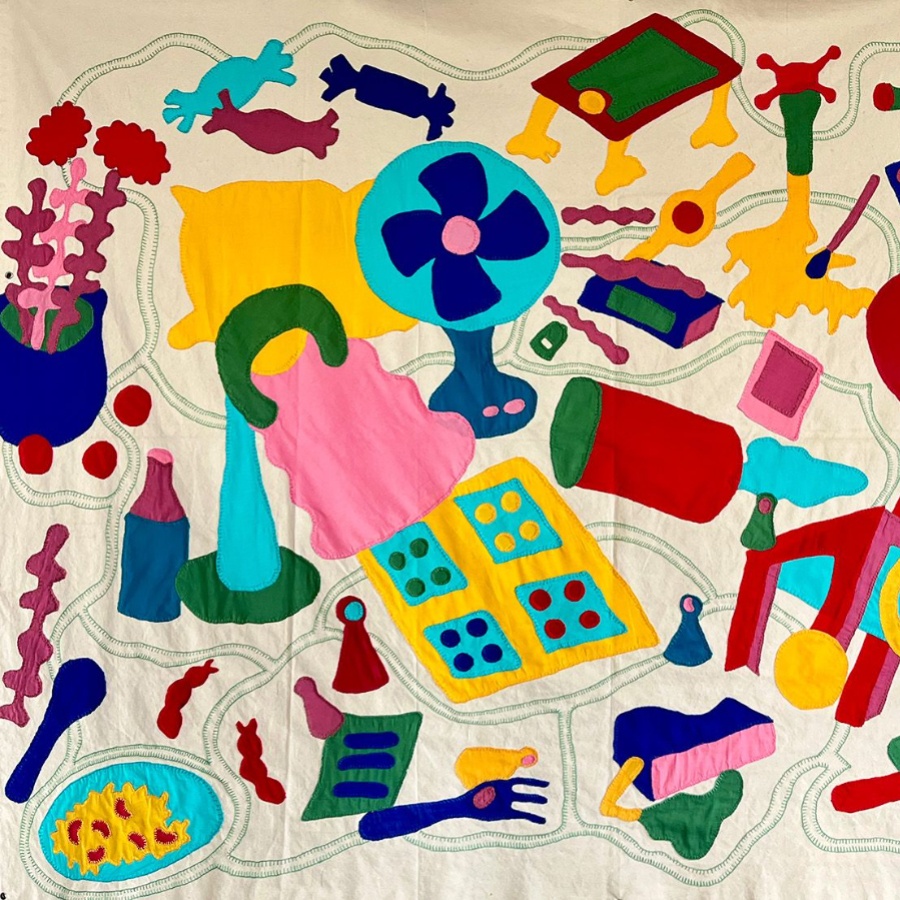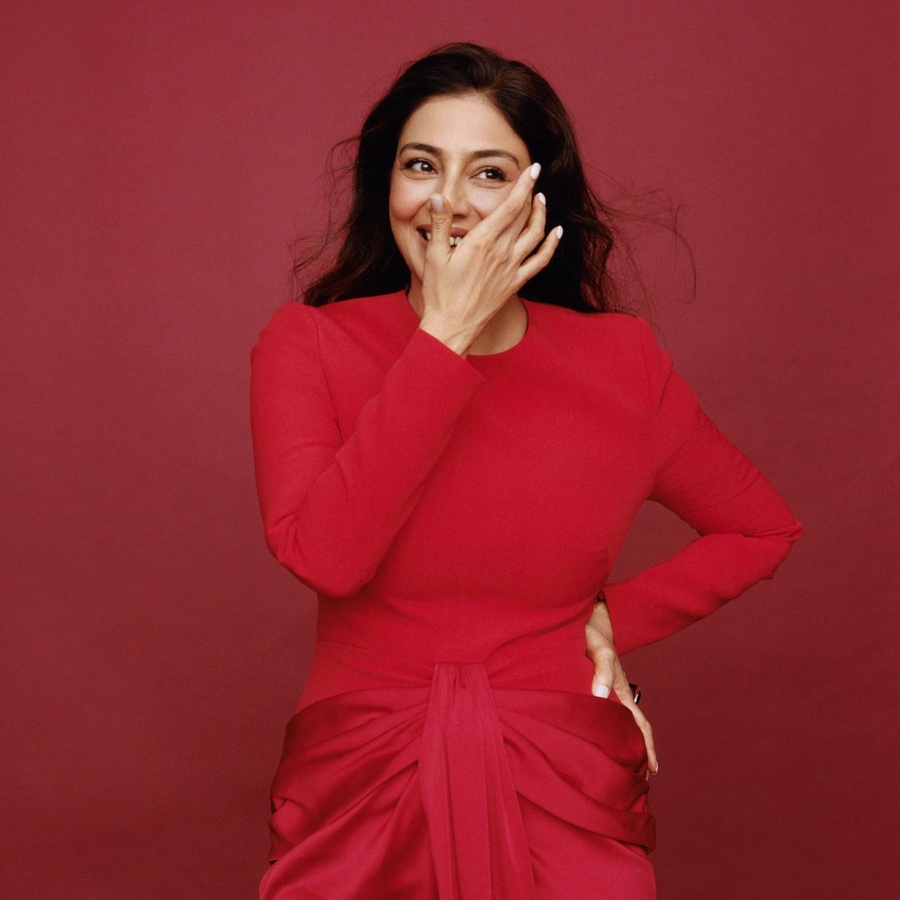We parents are a strange lot. We spend our entire life teaching our children to be independent, but when the time comes, it catches us unawares.
The empty nest hit me like a double whammy eight years ago, when Alia and Shaheen left the family home to stay together. Alia was 23 and Shaheen, 27. I remember returning from a shoot to a quiet home—no chatter, no clutter, no missing Tupperware tiffins. I was depressed, but after the initial sadness and shock came realisation. What now? Mahesh and I hadn’t spent a day alone in more than two decades, so I didn’t know how we’d cope.
Today I can tell you casually that it’s all part of life. Perhaps that’s how my mom felt when I left, and how Alia will feel when Raha sets off to live on her own. “I think I left home too soon…and I won’t let that happen with Raha,” Alia tells me as we settle into her living room sofa for a chat.
We haven’t done this before—just Alia and me sitting down to discuss our relationship deeply. For so long, we’ve been so busy creating a life that we forget to talk about all this. Where is the time?

Michael Kors tank top; Isabel Marant skirt and belt
For Alia, life unfolded with the film rolling. I recall all that so vividly—how she raced from school to film set without a pause. Bollywood breakout to superstardom, wife to mom—it all happened so fast. Which is why, when I see her curled up with Raha, playing in that beautiful beige and white nursery, I can’t help but think of her childhood. We didn’t have smartphones—heck, Alia didn’t even have a playroom. For my girls, the great outdoors was their playground. But then, life was simpler.
I remember a story that still makes me smile. Alia was in her baby-talk age, and she barged into our room, saying “Good Monga”, an adorable slip that we never let her grow out of. Even today, our family uses this morning greeting on our WhatsApp group. Back then, I’d sing them lullabies—passed down from my parents (Mahesh even used one of them for a song in his movie, Daddy). On VHS, I’d play ‘Mommy Comes Back’, a simple tune with rudimentary visuals that kept them hooked for hours.
That time I felt like a single parent. Mahesh was supportive, but he was knee-deep in work, shooting for three films a day. I remember Shaheen was just three weeks old when he went off to a shoot, and I was left literally holding a baby, who refused to sleep at night. Back then we lived in a small one-bedroom flat. We didn’t have a lot of money, we were young, we were struggling to make it. But the children were brought up with a lot of love. Today, Raha has a lot more. Alia’s position allows to give her the very best—the best childcare, the best nurses, and the best toys. Alia knows her privilege and is grateful for it.
Every parent hopes to raise their child well, wants their child to be a better version of them. When I see Alia, my sporty younger child who would come home from the park with muddy clothes, evolve into this darling of the entertainment world—her entry at the Met, her achievements in TIME Magazine, her roster of films—I’m amazed at how she does it. I’m aware that for every milestone and achievement, Alia has been the agent of her own trajectory—but it’s funny how this pride validates a parent, making them almost feel like they have achieved all this, which is not true.
But even the most successful child is a child, after all. We have all heard of the working mom’s guilt, but have you ever considered a working child’s guilt? “I remember when I was pregnant and shooting in London for Heart of Stone, I couldn’t sleep for three days because I felt so guilty about how maybe I wasn’t a good enough daughter,” shares Alia. She works hard on her mental health, but there are days she feels anxious about not picking up my calls or giving us any attention. “I don’t know if it was the hormones, but I remember this overwhelming feeling of love, care, responsibility, worry—all hitting me at once,” she tells me.

David Koma dress; The Line earring; Ayana Silver ear cuff; Raf ring
Below are edited excerpts from our chat:
Soni Razdan Bhatt: Alia, I remember, even as a child, you were so self-possessed and confident. You loved picking your own clothes when you went down to play. While most parents would coax their kids to put on a show for their friends, you were always ready with one when we had company. People were captivated by you, this child who wanted to show off her dancing. And that was so unlike Shaheen or me. Do you think we have anything in common?
Alia Bhatt: Oh god, too many things! I think you are a bit of a control freak and so am I. You’re very independent, like me, and you love to micromanage everything. We also share this trait of giving people unsolicited advice on what they should eat and how they should eat it.
One thing I definitely don’t get from you is how you’re very social, and way more adventurous than me. Like, you went on a trip to Antarctica—I’d never do that. It’s too unfamiliar to me.
SRB: Strange, but I don’t think I’m social either, so I think we are a bit similar. We have always had an easygoing relationship, except maybe for your teenage years. That was the only time I felt you became secretive. You’d lock your bedroom and talk on the phone all day, I had no idea what was going on. In your teens, the last person you want to be is your mother, but now that you’re a mom, do you think there is anything you’d do differently in terms of parenting?
AB: The only thing that I’d do differently is to make sure Raha takes a liking to an art. That she learns at least one instrument, one dance form, and one sport, because these three skills will be very helpful for her in the long run.
I know there is no right or wrong to this, but you left it up to me to decide what I like. I want to start Raha young, so she takes a liking to it. My only regret is not knowing how to play an instrument.
SRB: I consciously didn’t want to crowd your life with too many activities. You were naturally sporty; you had lots of energy to expend. I remember taking you for swimming, tennis, badminton, and squash.
AB: Yeah. One of the things I value in retrospect about you is how, unlike most parents, you just let me be, even when I was still finding my footing. I know that time would have been difficult—me not spending any time at home—but you were so supportive. I knew I could come back to you whenever I needed you.
I was barely 23 when I moved out of the house. I’d be away on long shooting schedules, and sometimes you wouldn’t even know which city I was in. Now when I look back, I’m like, wow, it was very cool of you to let me do that so early on because that actually helped me come into my own. Papa recently told me: “If you don't let Raha fall down, it will be the biggest mistake you’ll make because she’ll never learn how to pick herself up.” So that was a defining point in my life, and our relationship. But I do feel I left home too soon—and I won’t let that happen with Raha.

SRB: I agree, it all happened too quickly. You grew up very fast. You were suddenly in this professional space when you were not even an adult. Those days I remember feeling less mom and more like a manager. You’d barely spend five minutes with me in the morning for tea. All we had time for was for me to ask you what you’d like for dinner or lunch. But all that has changed, and I love where we are today.
I was thinking the other day how life has changed so much for children today. Earlier, our home (with Childcraft libraries) were our early education as there was no television, no internet, and no social media. As a mom in these hyper-connected times, how do you plan to control how much of our crazy world Raha is exposed to? How will you sift and cut the bad noise from the good noise in her life?
AB: Believe it or not, usually I’m a forward-thinking kind of person, but with Raha, I’m just taking each day as it comes. I’m going by instinct rather than overplanning. Because one thing I know for sure is that when you plan, the plans change.
Like most parents, I worry about the times we live in. I know I’d like to delay her introduction to screentime, but when I do, it would be to familiarise her with good movies. I want her to fall in love with them. Because that imagination is something else. I was never a big reader, but I remember watching The Lion King and feeling so creatively stimulated. And of course, there is nothing like being outdoors for a child growing up, so I’ll try and give her that as much as I can.

Gucci dress; Raf ring
SRB: They say that when a child is born, so is a mother. But they don’t talk about how a grandma is born. I distinctly remember calling your father when Raha was born, and how we both suddenly felt these territorial rights over a child who is not ours biologically. Do you ever find us interfering or intruding?
AB: I think you have been very gracious and given us a lot of space as new parents, while offering all the love and comfort.
SRB: Even when you moved out of the house, I’d never show up to your place without checking with you. And now, with Raha, I do the same. I respect your privacy.
AB: And that’s the way I like it. You don’t constantly give me advice on what to do, but you tell me what I need to when it’s necessary.
SRB: I want you to arrive at your own way of parenting.
AB: I know there’s no such thing as a perfect parent. And I try to tell myself that every day. But one thing I loved about our house was our approach to family life. Both Papa and you share this amazing outlook about children—that they come through you into the world to have their own world. I like this way of thinking, that a parent doesn’t need to dictate a child’s feelings or life, but should be present when the child needs them.
SRB: That’s validation for me. And I know Ranbir and you will do the same. The most important part of parenting is showing up for your children, witnessing their success from the sidelines, and being their biggest cheerleader. Trust me, that’s all you need.

Gucci jacket, skirt, and shoes; Raf ring
Make-up by Puneet B Saini. Hair by Flavien Heldt. Production by Imran Khatri Production. Visuals and bookings by Jay Modi. Art direction by Snigdha Kulkarni
Beauty partner: Tira




